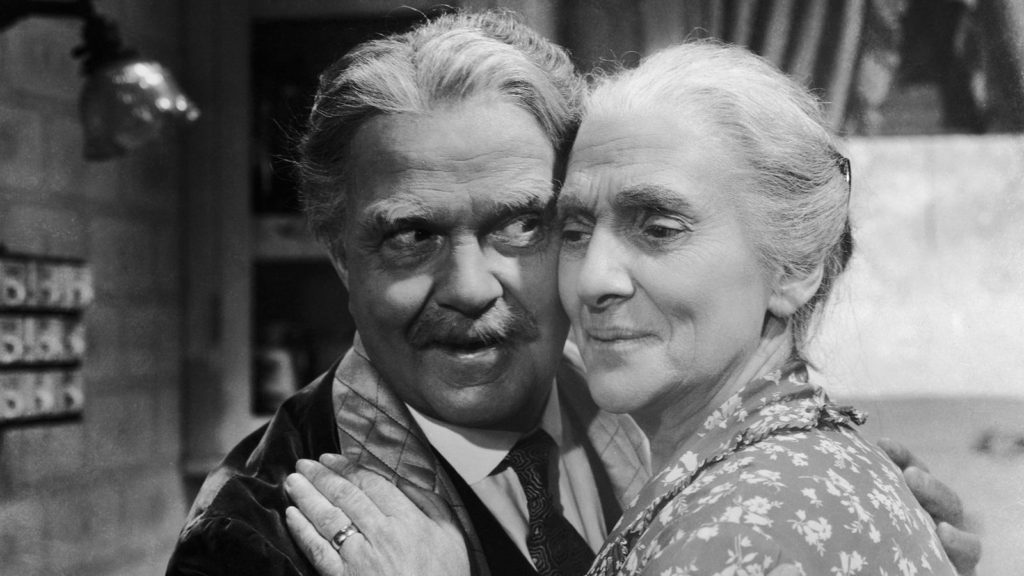
Bark Cooper, one of the two elderly protagonists of Leo McCarey’s MAKE WAY FOR TOMORROW (1937), boasts of one and only one accomplishment in his life. When he was a young man, Bark won the heart of his wife Lucy over a rival who became the town banker and achieved greater material success than Bark but lived a poorer life because he lived it without Lucy. While old men’s boasts and delusions are common plot points in Hollywood films, here it rings true: this one victory brought him his life’s happiness. Lucy and Bark share a love that is disarmingly simple, built on an unshowy adoration undimmed by the decades. Their love even has a transformative impact on strangers who would otherwise regard the old couple as relics trapped in the past or marks who should offer up money they don’t have. Only the couple’s grown children are by and large immune to the charms of their love, and when events threaten to separate the couple from their lifelong home and each other, each of them has perfectly good reasons to pass the buck. There has never been a more cruelly-titled film, and perhaps never a better one about the way in which the most poignant things human beings can create have no exchange value. — Russell Lucas (2019)
- Directed by: Leo McCarey
- Produced by: Leo McCarey
- Written by: Viña Delmar
- Music by: George Antheil Victor Young
- Cinematography by: William C. Mellor
- Editing by: LeRoy Stone
- Release Date: 1937
- Running Time: 91
- Language: English
Arts & Faith Lists:
2011 Top 100 — #6
2013 Top 25 Marriage Films — #5
2019 Top 25 Films on Growing Older — #4
2020 Top 100 — #22